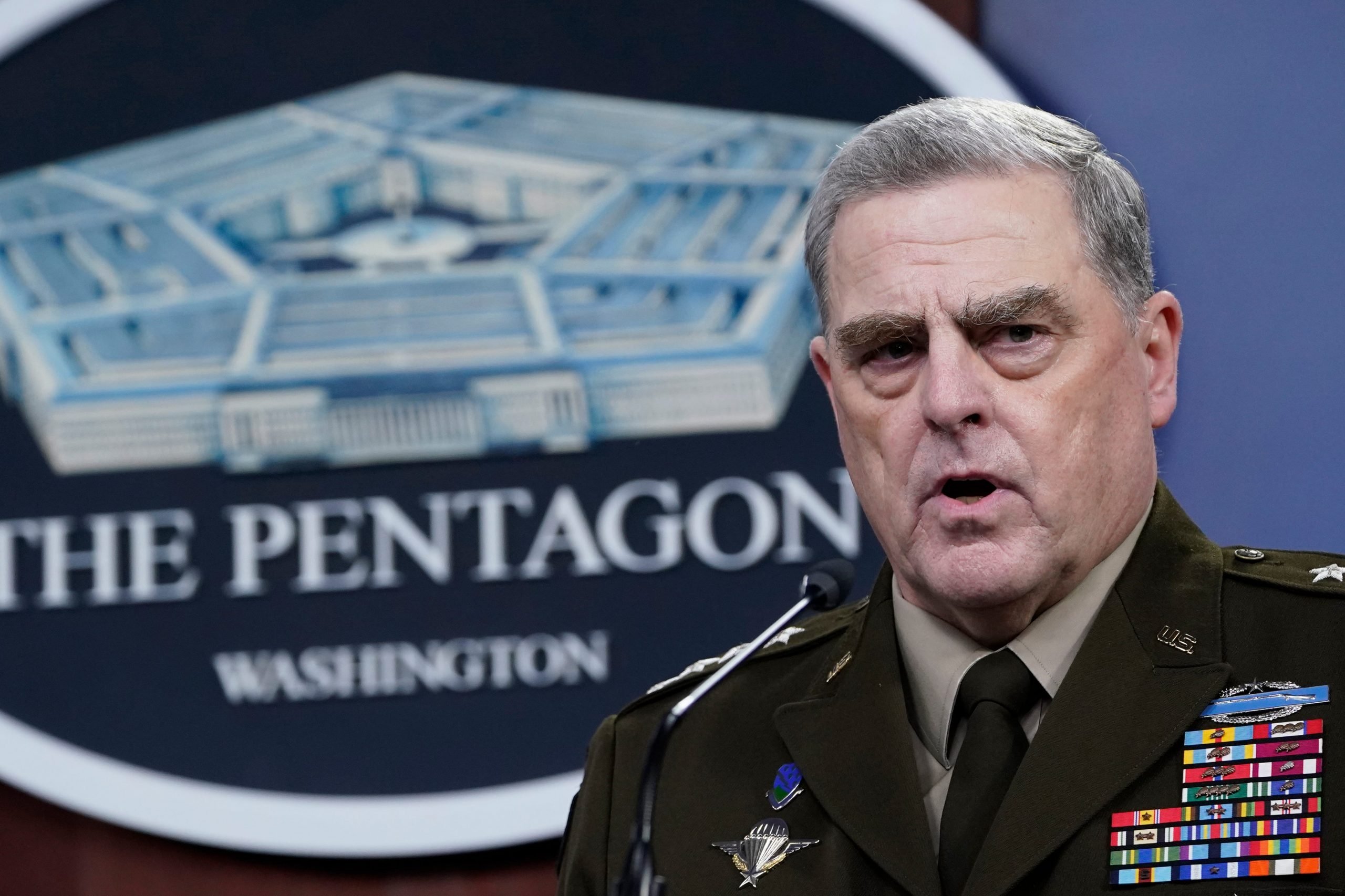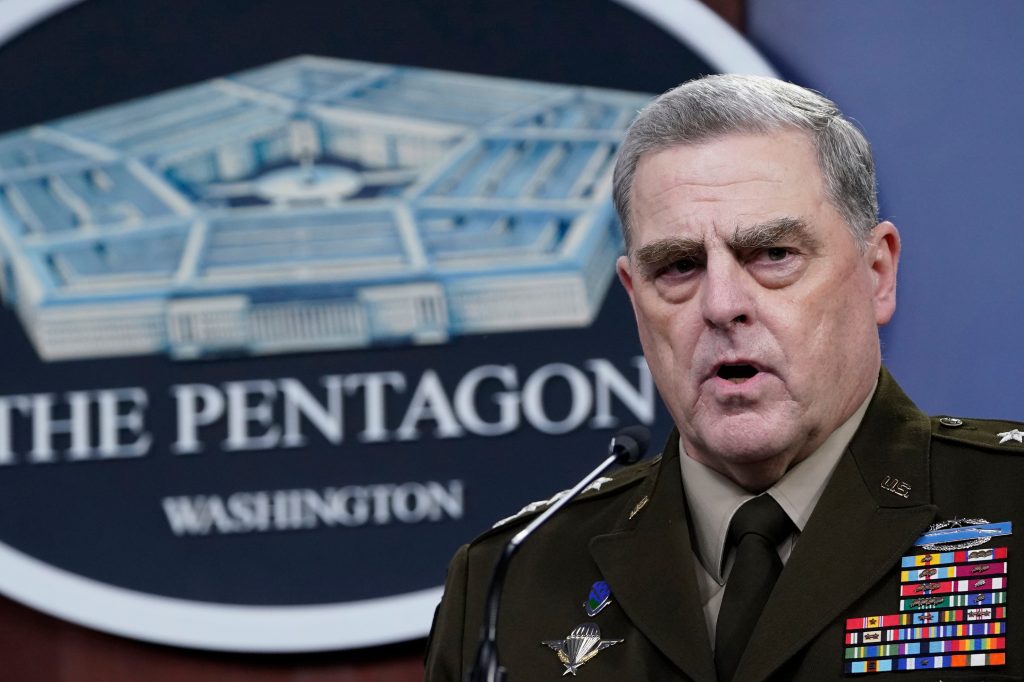
AP Photo/Susan Walsh
- Gen. Mark Milley said that a future civil war in Afghanistan is "likely" after the US troop exit.
- "I think there's at least a very good probability of a broader civil war," he said during a Fox News interview.
- President Biden last week said that he did not want "to extend this forever war" in Afghanistan.
- See more stories on Insider's business page.
Gen. Mark Milley, the Chairman of the Joint Chiefs of Staff, said that a future civil war in Afghanistan is "likely" after the US troop withdrawal from the country, which could lead to the reemergence of groups like al Qaeda and ISIS.
During an interview with Fox News National Security Correspondent Jennifer Griffin that aired on Saturday, Milley was asked if the US was safer with its military presence in Afghanistan having been eliminated.
"Well, you know, this is something that I've thought a lot about," he said. "And I personally think that my military estimate is that the conditions are likely to develop of a civil war. I don't know if the Taliban is gonna be able to consolidate power and establish governance – they may be, maybe not."
He added: "But I think there's at least a very good probability of a broader civil war, and that will then in turn lead to conditions that could in fact, lead to a reconstitution of al Qaeda or a growth of ISIS or other myriad of terrorist groups. You could see a resurgence of terrorism coming out of that general region within 12, 24, 36 months. And we're going to monitor that."
Milley went on to explain that intelligence gathering by the US will be complicated by the fact that the country no longer has a presence in Afghanistan.
"We'll have to reestablish some human intelligence networks, etc.," he said. "And then as opportunities present themselves, we'll have to continue to conduct strike operations if there's a threat to the United States."
Read more: The ultimate White House org chart to 600+ members of Biden's staff and who makes six figures
When asked if he could foresee a scenario where US troops would have to return to Afghanistan, Milley said it would be a "very difficult policy choice."
"I wouldn't say yes or no to anything actually," he said, emphasizing that the country would continue to analyze intelligence information. "I think those are ... it's too early to say anything like that at this point."
Milley's comments come as President Joe Biden and his foreign policy and defense teams oversaw a tumultuous August in Afghanistan - defined by the Aug. 15 fall of Kabul to the Taliban, the deaths of 13 US service members and at least 169 Afghans in a Aug. 26 suicide bombing perpetuated by the Islamic State affiliate ISIS-K, and the Aug. 31 withdrawal deadline which the Taliban was emphatic on preserving.
The withdrawal marked the end to a nearly 20-year conflict in the country, which was put into motion by the terrorist attacks of Sept. 11, 2001, when al Qaeda hijacked planes that destroyed the World Trade Center in New York City, severely damaged the Pentagon, and crashed into a field near Shanksville, Pennsylvania.
Nearly 3,000 people were killed on that fateful day.
Many lawmakers are distressed that Afghanistan could become a haven for terrorists with the lack of a US or allied military presence.
The Taliban have stressed that they have moderated since the 1990s and said that they would respect the rights of women, although many in Afghanistan and throughout the international community are highly skeptical.
In forcefully defending his decision to leave Afghanistan, Biden last week reiterated that he did not want "to extend this forever war."
"To those asking for a third decade of war in Afghanistan, I ask: 'What is the vital national interest?' In my view, we only have one: to make sure Afghanistan can never be used again to launch an attack on our homeland," he said.
